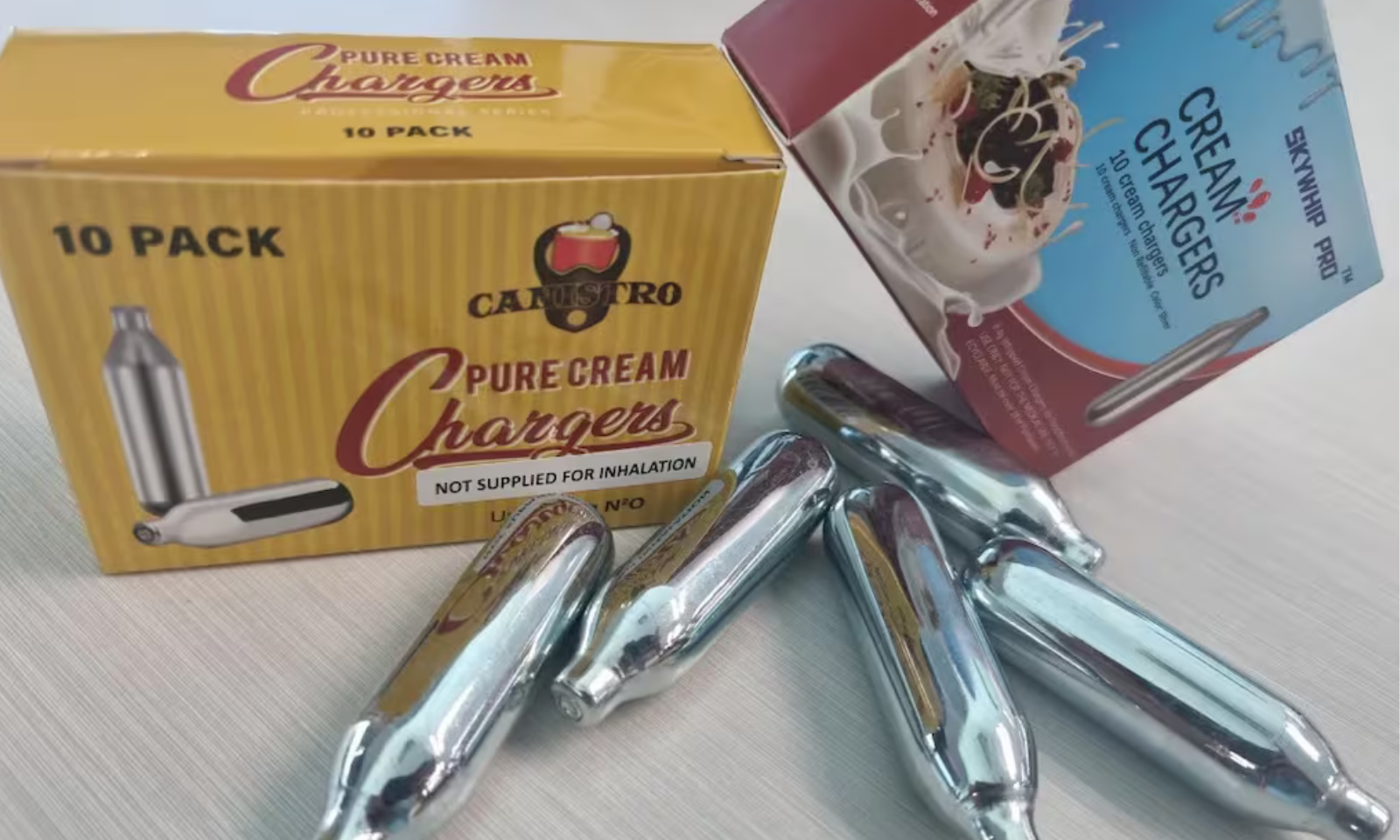

The government is warning against the sale and possession of nitrous oxide for recreational use.
Photo/RNZ
Govt warns against the sale and possession of 'nangs'
Urgent action is being taken to stop nitrous oxide from being sold recreationally after new advice from the experts.


Dave Rennie becomes first All Blacks coach of Pacific heritage

How the Pacific region could benefit from Argentina’s economic rebound, expert

‘Without fear or favour’: Barbara Dreaver chronicles 30 years on the Pacific frontline

Tongan family in Abu Dhabi recount explosions as Middle East conflict escalates

Dave Rennie becomes first All Blacks coach of Pacific heritage

How the Pacific region could benefit from Argentina’s economic rebound, expert

‘Without fear or favour’: Barbara Dreaver chronicles 30 years on the Pacific frontline
Nitrous oxide, commonly known as laughing gas NOS or nangs, is traditionally used in the medical field and the preparation of food.
However, when inhaled during recreational use, the nitrous oxide gas creates a dissociative high, leading to auditory and visual hallucinations, medical experts warn.
The small silver nitrous oxide cannisters are set to be banned in the United Kingdom as part of a wider crackdown on antisocial behaviour.
In Aotearoa New Zealand, there is no clear legislation around gas sales in shops.
Medsafe, the New Zealand Medicines and Medical Devices Safety Authority, released a new advisory on Sunday about nitrous oxide and its use recreationally as a psychoactive substance.

Nitrous oxide canisters have been increasingly used as recreational drugs. Photo/RNZ
Health Minister Shane Reti says after receiving the new Medsafe notice, the government is concerned about the sale and recreational use of nangs.
Reti is looking at possible regulation over nangs, saying those found to be in possession or selling nangs could be prosecuted by the police.
“Last week, I received advice from the Ministry of Health about a change in approach that would clarify the law for suppliers and users of nitrous oxide.
“This will enable police to prosecute the sale and use of nitrous oxide for recreational use.”
The government says the sale of nangs in New Zealand could lead to two years in prison, or a $500,000 fine, and up to a $500 fine for possession.
In a statement, Reti said Medsafe had advised that when used recreationally, nitrous oxide would fall under the Psychoactive Substances Act 2013 - and, when breached, could lead to prison time or a fine.
“Whereas nitrous oxide had been considered under the Medicines Act 1981, Medsafe now advises that when it’s sold primarily for the purpose of inducing a psychoactive effect, the Psychoactive Substances Act 2013 applies.
“No products containing nitrous oxide have been approved for use under the Psychoactive Substances Act, making it illegal to sell nitrous oxide or products containing nitrous oxide for recreational use. A breach of this regulation is punishable by either prison time or a fine.”

Drug Foundation Executive Director Sarah Helm. Photo/Supplied
Drug Foundation Executive Director Sarah Helm told William Terite on Pacific Mornings, that not many people are using nitrous oxide, but there are concerning reports of sales to youth.
“There's not necessarily a growth in popularity of nitrous oxide, but there have been some concerning reports around the sale to younger people.”
Helm says nitrous oxide is harmful in larger quantities, and the sale of larger canisters can lead to excessive use, causing harm to those who have a vitamin B12 deficiency.
“Usually nitrous oxide is at the low harm end of the spectrum, but there are some caveats to that. One of them is really excessive use, and these big canisters lead to that really excessive use.
“If somebody's got a B12 deficiency or they don't know how to use it, that's where it's really risky. I think with, underage people, all of those risks compound. We're hearing about pockets of it, but it’s not widespread.”
But Helms says the new $500 possession fine for nitrous oxide is problematic because it makes it harder to discuss nitrous oxide due to fears of a fine and having a criminal conviction on the record.
“I think the possession piece I'm concerned about. I understand the focus is on the sale, but the fact that there is the ability to penalise people for possession is actually problematic because it makes it really hard to talk to people about it.
“They end up with a criminal conviction, their lives are wrecked.”
Watch Sarah Helm's full interview.